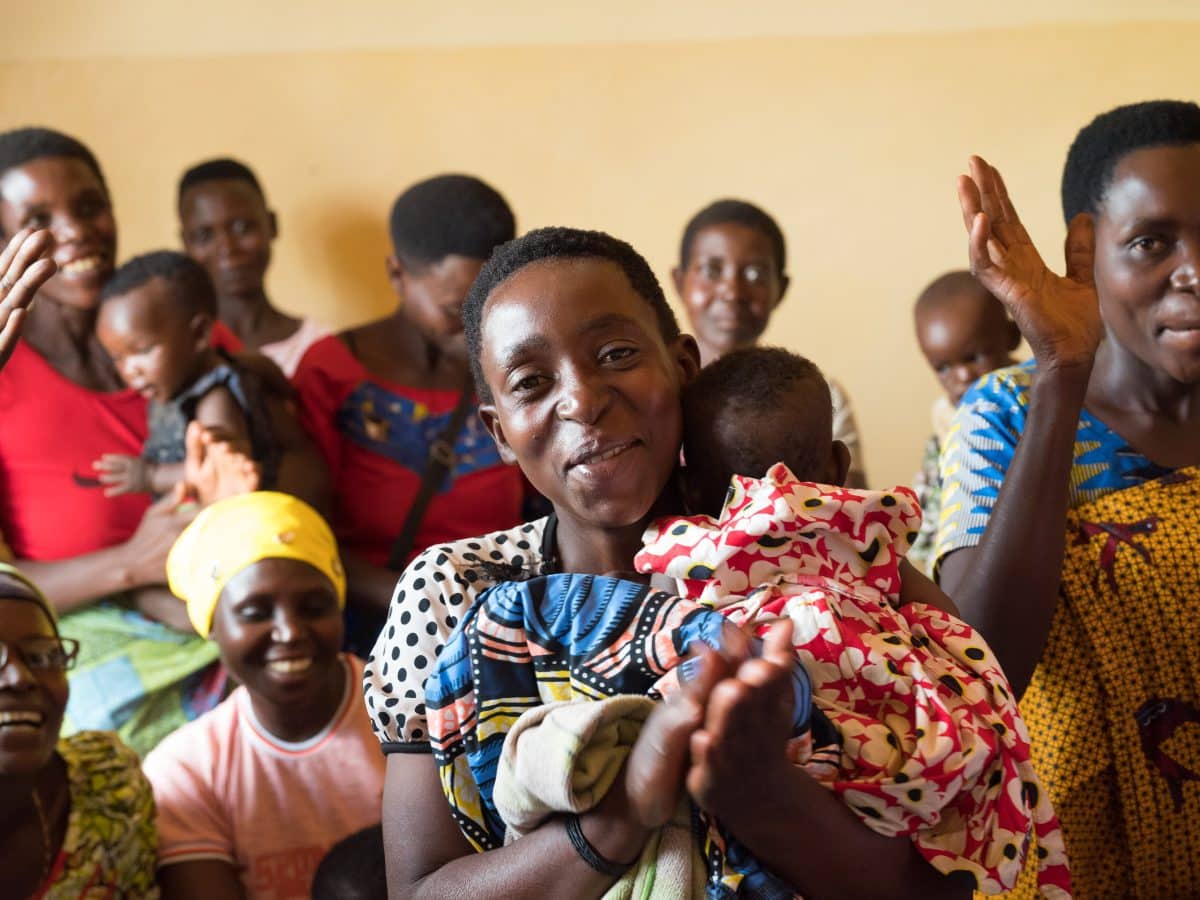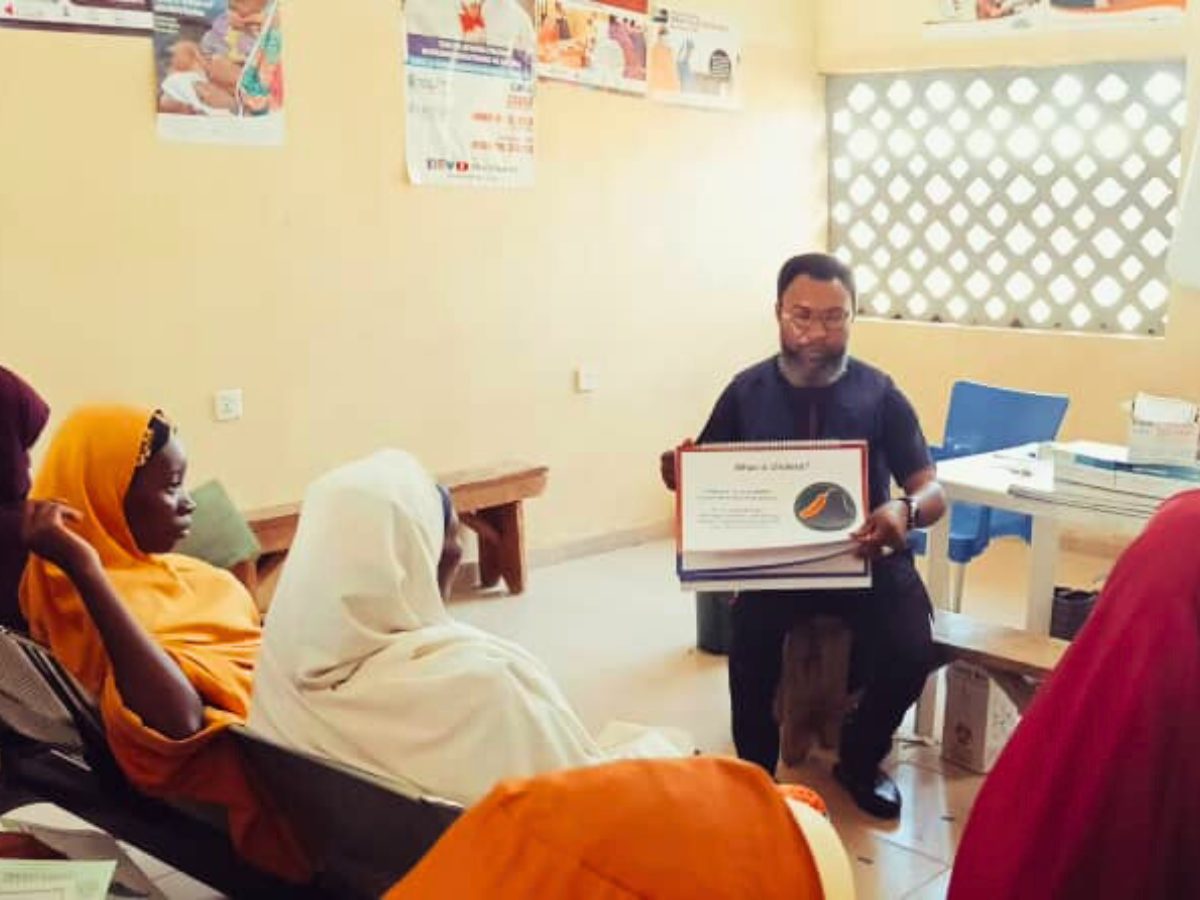When Cynthia Niyonkuru was a young girl in the city of Kayanza, Burundi, she didn’t know why she had to take medication every day. Once she was older, her mother told her she had acquired HIV through vertical transmission, and that to live a long, healthy life, she must continue taking her medication consistently. That’s exactly what Cynthia did.
“When we were coming to take drugs at the hospital, I used to see other young people staying outside the hospital gate,” Cynthia said. “They didn’t want to enter, but I was entering without any problem…I had no fear.”
“I started to feel that I should be the leader of those young people,” Cynthia added, “and sensitize them not to be afraid, to accept their situation as it is.”
Cynthia is a peer educator, a young person living with HIV who supports other young people living with HIV to accept their HIV status and adhere to treatment. She is one of many peer educators working with the Reaching Impact, Saturation, and Epidemic Control (RISE) project in Burundi. Funded by the U.S. President’s Emergency Plan for AIDS Relief (PEPFAR) through the U.S. Agency for International Development (USAID), the RISE-Burundi project partnered with the Government of Burundi between 2019 to 2024 to advance efforts to achieve HIV epidemic control.
Implemented in Burundi by ICAP at Columbia University, RISE-Burundi supported 188 health facilities across 25 districts over the life of the project to reach the UNAIDS 95-95-95 targets. As the program comes to a close in 2024, the RISE-Burundi program leaves behind a legacy of person-centered and community-based care, having mobilized providers and stakeholders across the health system, including peer educators like Cynthia, to ensure Burundians have safe and continued access to HIV prevention, care, and treatment.
While the east-central African nation of Burundi has made remarkable progress in its HIV response in recent years, the country faces an HIV prevalence rate of 0.9 percent. At the start of RISE in 2019, an estimated 12 percent of people living with HIV in the country (approximately 9,800 people) were undiagnosed, and the largest testing gaps were among children, adolescents, young men, and sex workers. A primary objective of the RISE-Burundi program was to address disparities that remained in the HIV care cascade among specific provinces and populations, and to support HIV testing, prevention, care, and treatment amongst priority populations in target districts.
HIV Testing & Prevention
RISE-Burundi facilitated index case testing and HIV self-testing to close gaps in case identification. The program trained and mentored health care workers and community workers, for example, to counsel index clients, elicit contacts, assess risks for intimate partner violence, and assist with partner notification by phone or during home visits. In addition, in collaboration with the community-based organization Réseau Burundais des Personnes Vivant avec le VIH (RBP+), RISE integrated assisted HIV self-testing into outreach activities for hard-to-reach contacts of index cases and priority populations. Community relay workers offered counselling, demonstrated how to use the test, and followed up with recipients of care who had a reactive test, ensuring clients were linked to a health facility for confirmatory testing and initiation of antiretroviral treatment (ART).
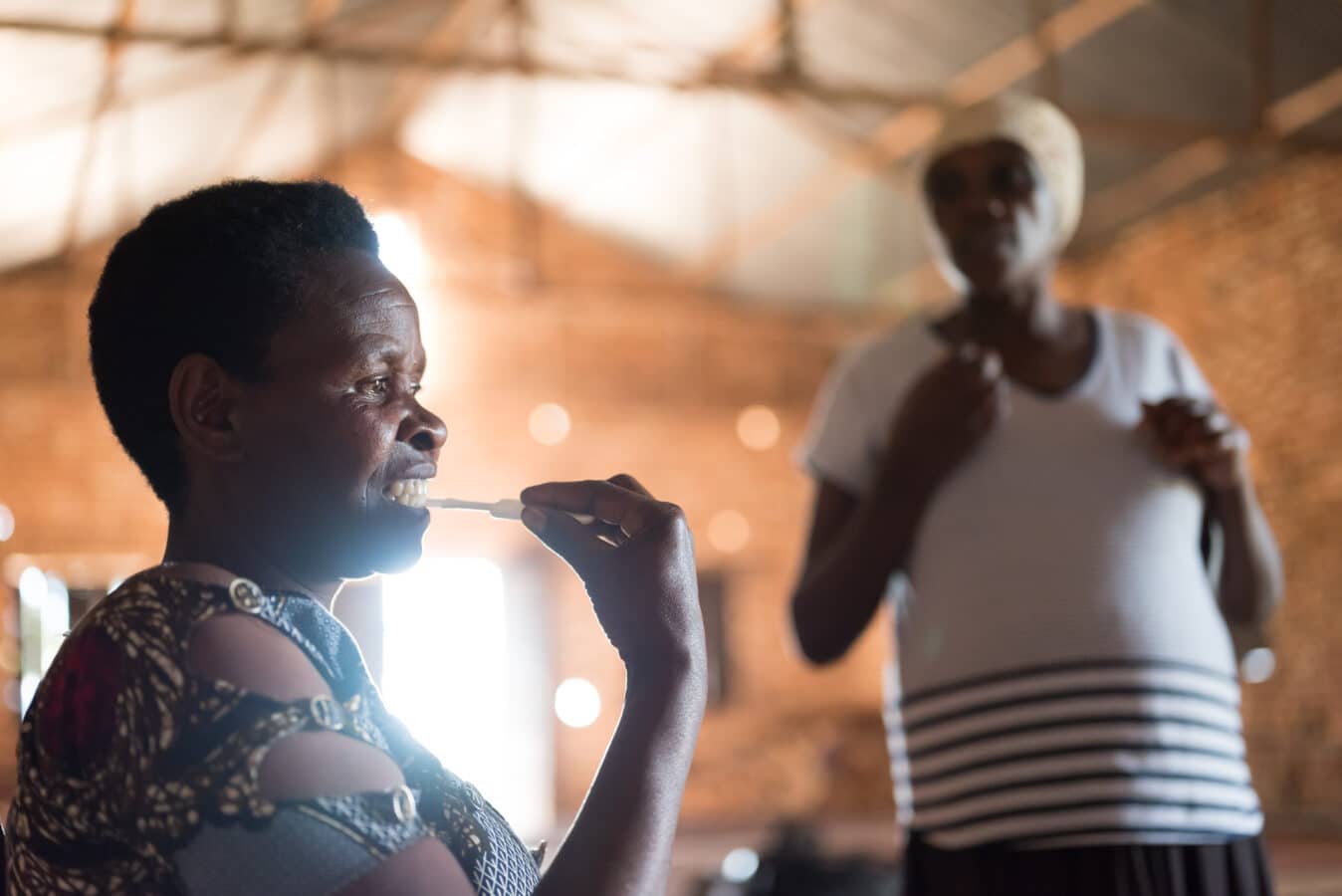
A woman takes a HIV self-test, guided by a community relay worker trained by RISE.
RISE also engaged mentor mothers – women living with HIV who support pregnant and breastfeeding women living with HIV to adhere to treatment – and adolescent peer educators like Cynthia to support HIV case finding and testing efforts, including through assisted HIV self-testing in the community.
“RISE has really taken the time to train the peer educators, the mother mothers, and the community relay workers,” said Kanyekigo Spes Caritas, a nurse at Gitega Hospital who manages the mentor mother and peer educator program. “Thanks to the training, they are valued and when they make visits they are well received.”
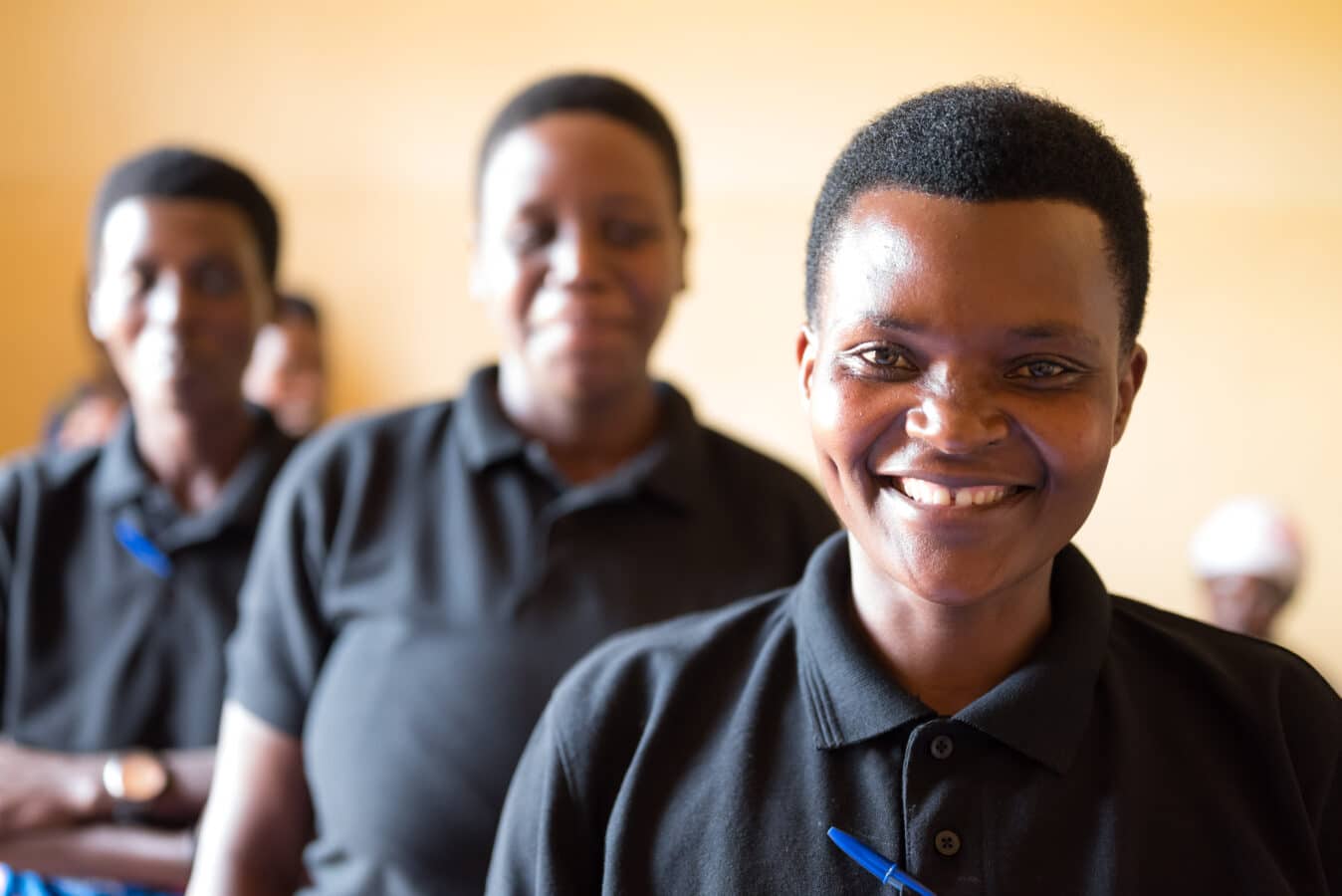
Mentor mothers (pictured here) have been trained to support pregnant women living with HIV in treatment adherence, breastfeeding, and more.
Between October 2019 and June 2024, a total of 9,610 people living with HIV were newly diagnosed with HIV at RISE-supported health facilities, including 61 percent (5,890) identified through index testing. The percentage of children under 15 years old living with HIV and the percentage of young men ages 15-24 living with HIV who knew their status increased from 36 percent to 65 percent and from 47 percent to 82 percent, respectively.
These client-centered approaches to improving access to and demand for HIV testing and other services also included collaborations with maternal and newborn units within supported districts.
“When a woman is coming to deliver in our hospital and we are giving them sanitary packs [donated by RISE],” said Esperance Nsengiyumva, head of CDS Izere care service in Kirundo, “she is feeling proud, respected, and she is even inviting others to come to give birth in our facility when they hear such news.”
RISE also facilitated the delivery of HIV prevention tools among individuals vulnerable to HIV acquisition, including HIV-negative partners within sero-different couples. Pre-exposure prophylaxis (PrEP) sensitization was integrated into counselling for recipients of care with a detectable viral load, and HIV-negative partners were invited to attend. In addition, RISE implemented a PrEP screening tool at outpatient and antenatal consultations to identify people who would benefit from PrEP. From October 2019 to June 2024, the program linked 1,720 individuals across all 188 RISE-supported facilities to PrEP.
HIV Care and Treatment
RISE made major strides in improving ART adherence and continuity in treatment through person-centered approaches and facilitation of differentiated service delivery.
Early in the program – catalyzed by the onset of the COVID-19 pandemic – RISE-Burundi collaborated with the Ministry of Health to support district health teams to implement three-month dispensing of ART for adults and children, and later scaled up six-month dispensing of ART. By June 2024, 80 percent of adults and 46 percent of children under 15 had been enrolled on six-month ART dispensing. Importantly, through the RISE program, recipients of care were given the choice of how to receive ART at RISE-supported health facilities. They could pick up medication, for example, through community ART groups, in which one member collects refills for the whole group, three-monthly or six-monthly clinic appointments, or delivery via a community relay worker who would deliver refills to their home.
All newly diagnosed adults, adolescents, and children received tailored counselling to mitigate stigma, build treatment literacy, address concerns about ART, and promote adherence to support continuity of treatment. By 2024, 97 percent of recipients of care had initiated ART the same day they were diagnosed with HIV and at least 98 percent initiated ART within one week of diagnosis.
“RISE implemented differentiated service delivery, which helped people living with HIV to access multi-month dispensing of medication,” said Rose, a RBP+ representative in Ngozi province. “It reduced cases of people needing to use their own money to take transportation to get to the clinic and it also led to fewer missed appointments. Now, we are seeing more recipients of care with suppressed viral load in our communities.”
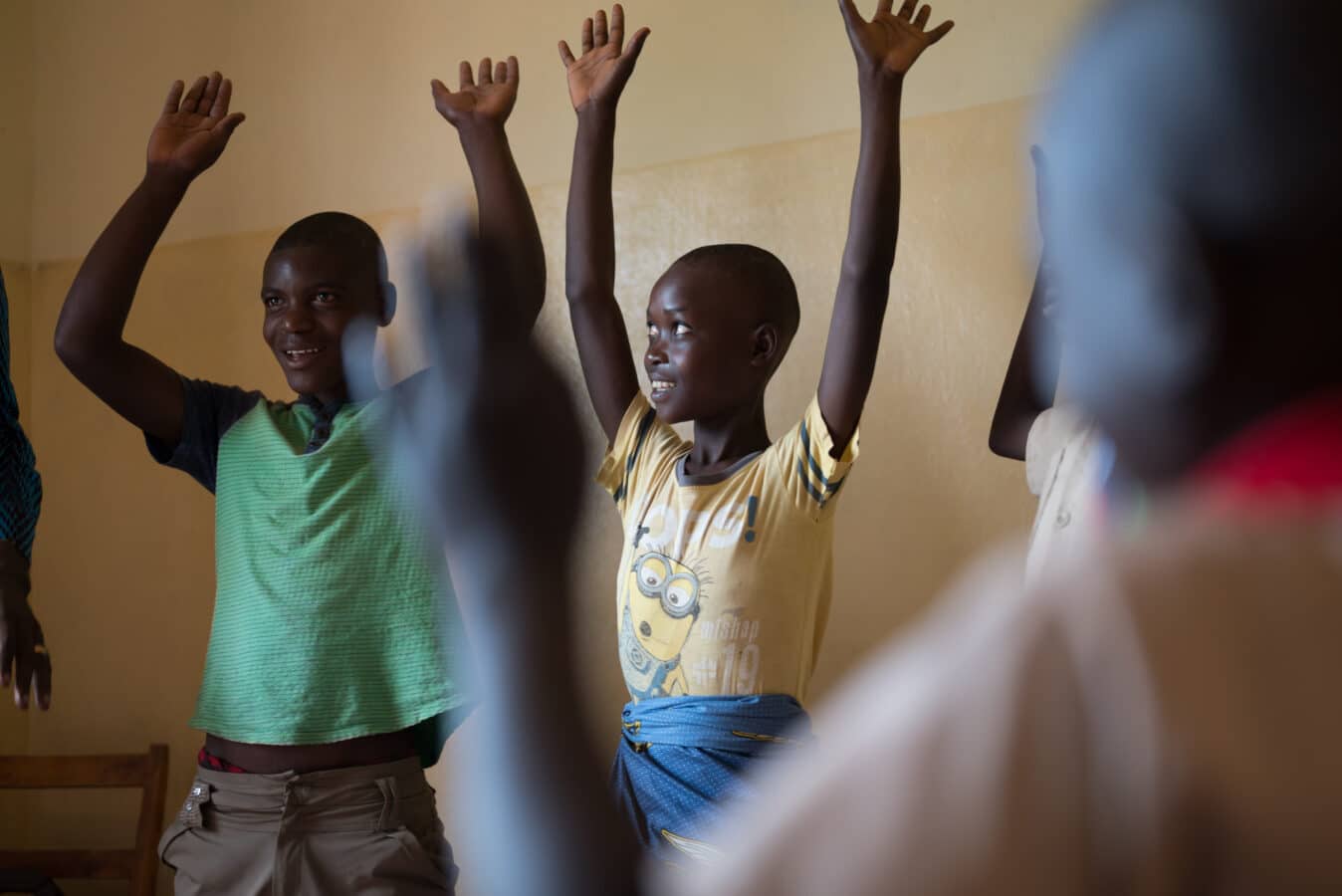
An adolescent community ART group gathers to play a game at a meeting in which they will also receive their medication and viral load testing.
Viral Load Suppression
At the start of RISE, Burundi had attained 88 percent viral load suppression amongst all people living with HIV and on ART, but progress lagged among children under 15 and young men ages 15-24.
RISE mentored health care providers to enhance literacy on Undetectable = Untransmittable (U=U) – a concept that means people living with HIV who maintain an undetectable viral load by taking ART cannot transmit the virus to others – while ensuring that patient files were reviewed daily to identify recipients of care due for viral load testing. RISE also offered blood draws during support groups, adolescent adherence clubs, and community ART group meetings, and increased viral load testing demand and coverage by optimizing the lab diagnostic network and prioritizing pregnant women, infants, and children for viral load testing. By the end of 2023, rates of viral suppression amongst children, adolescents, and pregnant and breastfeeding women had reached 92 percent, 95 percent, and 97 percent, respectively.
In addition to supporting HIV prevention, care, and treatment, RISE also worked to optimize data systems and supply chain management across Burundi, including by facilitating a national electronic medical record system and fingerprint-based unique patient identifiers, and procurement of essential supplies for laboratories and health facilities.
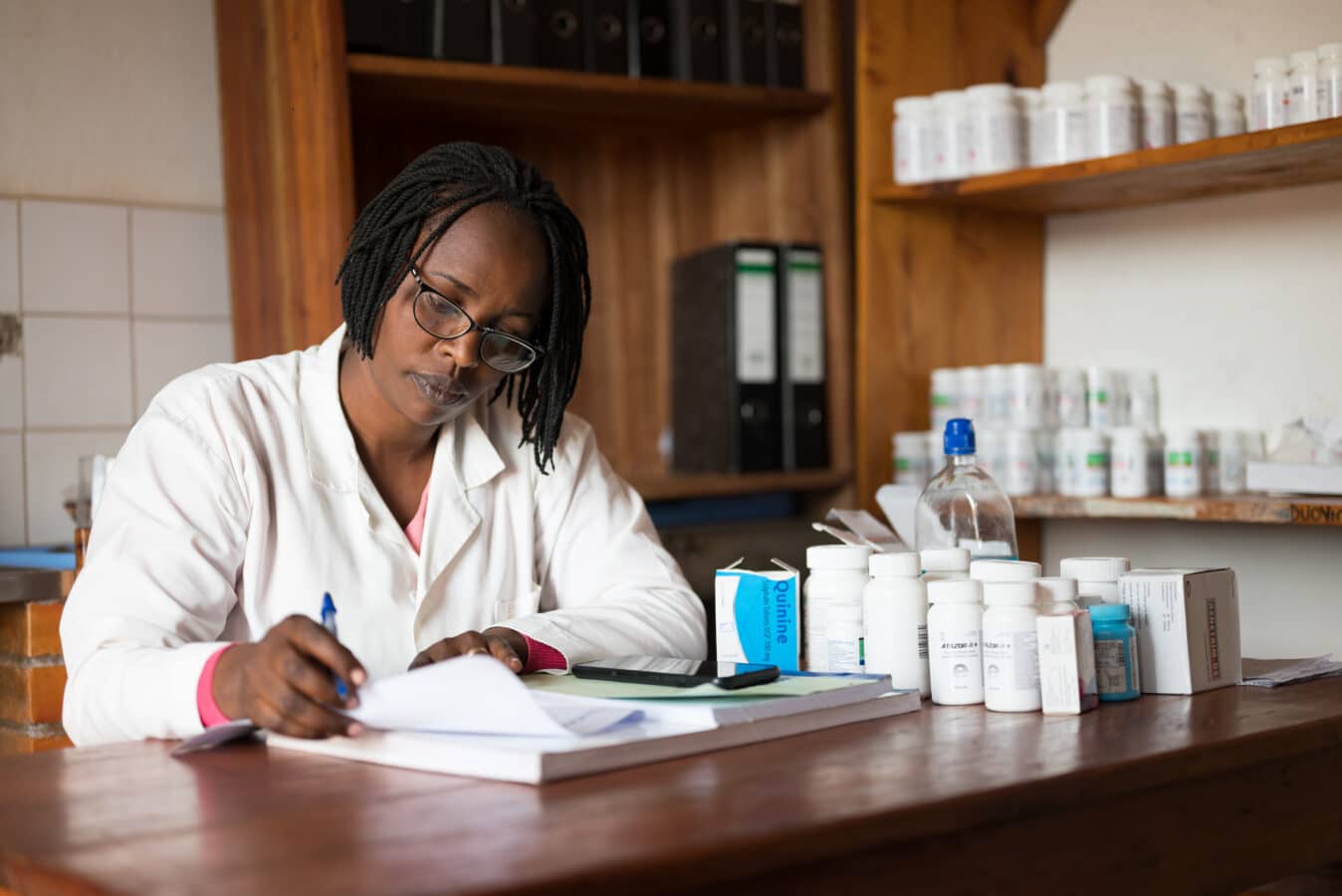
Multi-month dispensing allows recipients of care to access more medication over fewer health facility visits.
RISE-Burundi’s Legacy
As a peer educator, Cynthia gives a lot to her community, helping raise awareness about HIV and even organizing ART groups where youth come together to access their medication – but she also gains a lot.
“Before, I remember I didn’t know much about HIV,” said Cynthia, reflecting on her journey to getting involved with RISE. “But now, I feel I can share my knowledge with youth and adolescents. I also gain friends. Before, I was coming alone to the health facility, but with the role of peer educator, RISE has given me those friends I wouldn’t be able to have otherwise. And they are those friends in which we can discuss our lives and support each other without feeling afraid.”
As RISE-Burundi closes, its legacy will live on not only through the recipients of care, health workers, and community workers that were impacted by its support, but through PEPFAR’s and USAID’s continued investments in the HIV response in Burundi through the USAID Baho Mbeho project (which means “You live, I live”), an HIV care and treatment project implemented by ICAP that facilitates a client-centered approach similar to RISE. Launched in 2023, the new program will continue to build on the impressive gains achieved by RISE.
Photos by Artur Francisco for ICAP
About ICAP
A major global health organization that has been improving public health in countries around the world for two decades, ICAP works to transform the health of populations through innovation, science, and global collaboration. Based at Columbia Mailman School of Public Health, ICAP has projects in more than 40 countries, working side-by-side with ministries of health and local governmental, non-governmental, academic, and community partners to confront some of the world’s greatest health challenges. Through evidence-informed programs, meaningful research, tailored technical assistance, effective training and education programs, and rigorous surveillance to measure and evaluate the impact of public health interventions, ICAP aims to realize a global vision of healthy people, empowered communities, and thriving societies. Online at icap.columbia.edu


